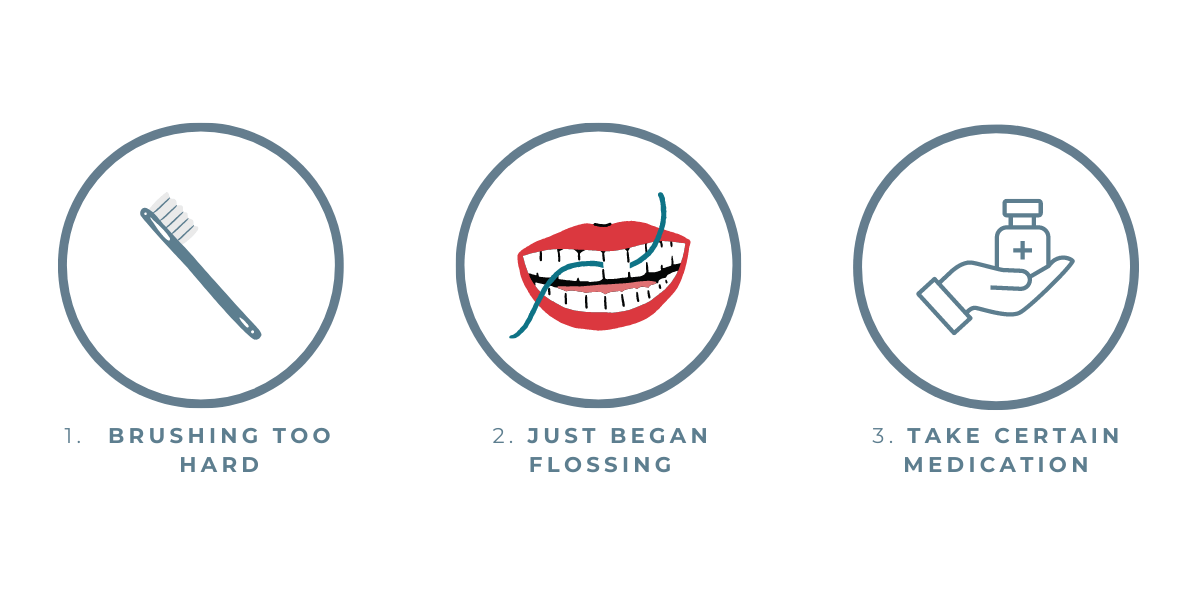5 Things You Need To Do If You Have Bleeding Gums
Picture the scene: you’re cleaning your teeth, or possibly eating food, when you notice bleeding gums. It might sound like a drastic scenario, but bleeding gums are more common than you might think. In fact, here in the UK, some dentists reckon as much as 90% of the population experiences occasional bleeding of the gums in their lifetime. A sobering statistic, but one you can do something about. If you’ve suddenly noticed your gums are regularly bleeding through normal everyday activities, here’s what you can do.
Causes of bleeding gums

1. Keep calm and carry on flossing
Our oral care routines are important – they’re the first line of defense against decay, plaque, bacteria build-up and infection. Good oral health care can mean the difference between extractions, fillings, and countless root canals, or happy and healthy teeth that could last your lifetime. And, if you aren’t caring for your smile properly, you could face worse threats in the future, like gum recession and potential periodontitis. So, mild or occasional bleeding? It might be that your gums aren’t used to regular flossing and intensive cleaning.
2. Stub out the bad habits
Vaping and smoking can have an effect on your oral health, especially your gums, due to the chemicals in the smoke, the presence of nicotine, and even the heat produced from lighting up. Smoking has long been linked to gum disease and periodontitis, with bleeding or receding gums a common symptom.
3. Ditch the sugar fix
Sugar is one of the top enemies of our dentists here at our dental practice near Ripon. That’s because plaque bacteria feed on sugar, turning it to acid which then erodes the enamel surface of your teeth. Research also shows that sugar feeds the bacteria that cause gum disease, destroying the delicate, protective tissues that support your smile.
4. The tools of the trade
You might think that the tougher the toothbrush, the better the cleaning. Actually, vigorous and abrasive brushing can wear down the soft gum tissues over time and cause irritation in the mouth. A soft-bristled brush is, surprisingly, just as effective at removing plaque and bacteria. Another thing to bear in mind: when flossing, always do this as part of your routine. Sporadic flossing can actually lead to bleeding gums as your mouth isn’t ‘used’ to it.
5. Don’t delay, book a check-up today
If all else fails, or you’re concerned about your smile, we’ve got you covered. Book a check-up at our dental practice near Ripon today so you can discuss your concerns regarding your bleeding gums today with one of our experts.

